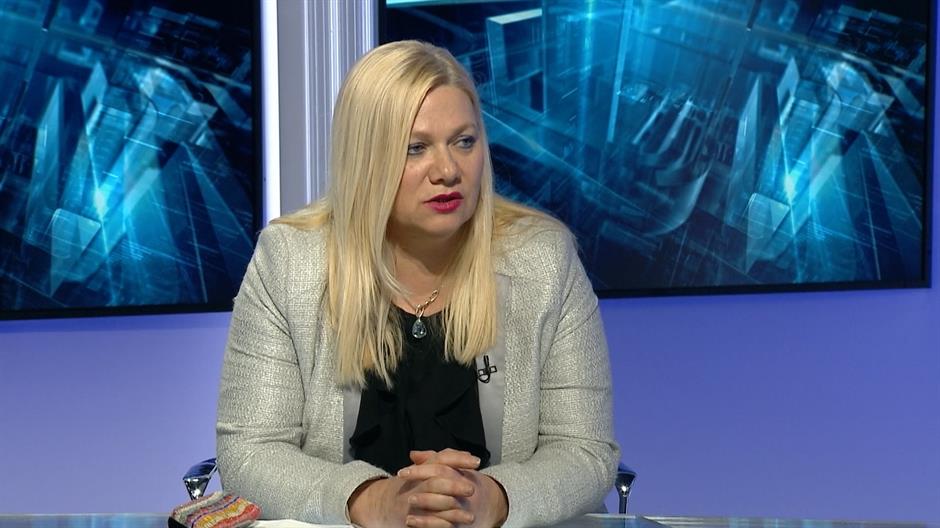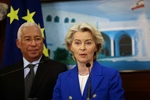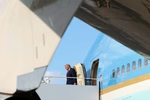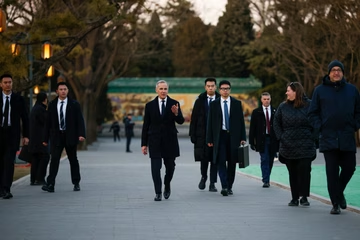Judicial official urges Presidency to inform UN, EU of interference in judiciary

The deputy president of Bosnia’s top judicial body urged on Monday the country’s Presidency to “react and inform the United Nations and the European Union about the interference” by Bosnia’s international administrator, the OSCE and foreign ambassadors into the work of the country's judiciary.
Ruzica Jukic complained about foreign diplomats pushing for measures to be taken against the President of the High Judicial and Prosecutorial Council (HJPC), Milan Tegeltija, who was secretly recorded in a coffee shop as he met with a businessman who asked him to help speed up his court case.
After splitting with Tegeltija, the businessman who recorded the footage is seen paying a policeman who arranged the meeting a significant amount of money, which the policeman said was for “shoeing the horse,” referring to paying Tegeltija for the favour.
The HJPC, the only institution in the country authorised to appoint and discipline judges, prosecutors as well as its own members, stood behind its boss and rejected a disciplinary complaint against him and a request for him to be suspended pending the investigation.
This means there is nothing anyone in the country can do about Tegeltija in terms of dismissing or trying him.
This outraged Bosnians nearly more than the video itself and the foreign official the international community named to oversee Bosnia’s implementation of the treaty that ended the war, Austrian diplomat Valentin Inzko, criticised the decision, as did the OSCE Mission in the country and a number of foreign embassies.
Tegeltija’s deputy Jukic fired back with her request for the country’s Presidency to complain to the UN and EU about Inzko, the head of the OSCE Mission in Bosnia and the ambassadors of the US, the UK, Germany, Netherlands and Spain after they issued a joint statement calling Tegeltija’s impunity unacceptable.
“Mr Inzko and the above mentioned representatives of embassies, as well and the head of the OSCE Mission in Bosnia and Herzegovina, have with their statements directly damaged the independence of the judicial system and stepped outside of the framework of their competencies,” Jukic wrote, calling the behaviour of the diplomats “scandalous.”
She condemned the statements which criticise the decision of the Disciplinary Commission to reject the complaints targeting Tegeltija, saying that those who made the statements “have interfered” in the decision-making process of a judicial institution “in the gravest way, using the power they have in a sovereign state.”
“Nobody has the right, and especially not foreign embassies, to interfere in the work of judicial institutions in a way which produces pressure on what decision will be made in a judicial procedure, prosecutor’s investigation, disciplinary decision, decision of the Council regarding the naming of those who will serve judicial position and all other decisions which are defined in the law - how they are made and who makes them,” she wrote.
Jukic asked if “the donations to the justice system of this country are a justification for the ambassadors of the above-mentioned countries to interfere in making judicial, prosecutorial, disciplinary decisions or decisions on naming officials in the judicial system.”
She asked whether the businessman, Alesevic, would be arrested in their countries if “he would have tried to compromise a senior judicial official” and because he illegally recorded it and kept the video for several months, or if he would be treated as a “national hero” because of it.
She also asked whether the security ministers in their countries could “organise protests demanding the collapse of the third tier of government while he himself is under prosecutorial investigations?”
She referred to Dragan Mektic, Bosnia's Security Minsiter who called on citizens to protest in front of the HJPC building after the allegations emerged.
“Of course this would not be possible in their countries, as their judiciary is protected from such attacks which lead to anarchy and general distrust of the citizens in the judicial system,” she wrote.
Kakvo je tvoje mišljenje o ovome?
Učestvuj u diskusiji ili pročitaj komentare





 Srbija
Srbija
 Hrvatska
Hrvatska
 Slovenija
Slovenija



























































